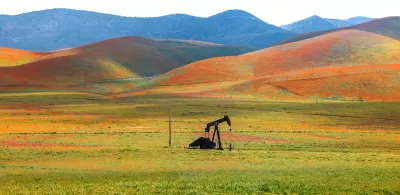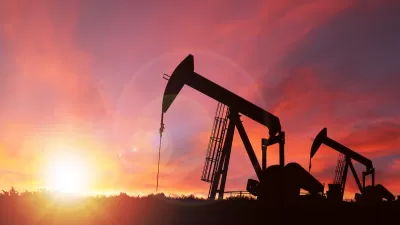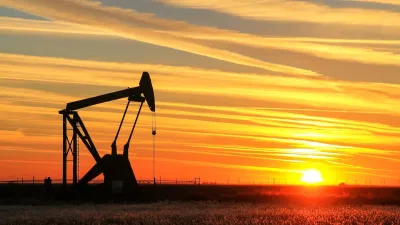Taxpayers, federal agencies, and tribal governments are working to address Arizona's orphaned oil and gas wells, which pose environmental and health risks, while advocates call for greater accountability from oil and gas companies.

Arizona is home to approximately 200 orphaned oil and gas wells, which are abandoned wells with no identifiable owner. These wells leak methane and other pollutants, posing serious environmental and health risks, particularly to nearby communities. They can contaminate groundwater, harm wildlife, and contribute to air pollution. Federal, state, and tribal agencies are responsible for the costly task of locating, capping, and remediating these wells, which are a burden on taxpayers.
Efforts to address orphaned wells include federal funding initiatives like the Biden-Harris administration’s $25 million grant to Arizona’s Department of Environmental Quality (ADEQ) for its Orphaned Oil and Gas Well Program. This program aims to identify and remediate orphaned wells across the state by December 2025, with 80 wells already located and 38 prioritized for plugging. The Navajo Nation has also received $5 million to address 19 wells, alongside a memorandum of understanding with the Department of Energy to further remediation efforts on tribal lands.
Advocates argue that oil and gas companies, not taxpayers, should bear the financial responsibility for plugging orphaned wells. Organizations like the Well Done Foundation emphasize holding companies accountable to prevent reliance on public funds. While the funding helps mitigate immediate risks, lawmakers like Rep. Raúl Grijalva stress that this is not a sustainable solution. The need for systemic reform to ensure companies clean up after themselves remains central to solving the problem.

Trump Administration Could Effectively End Housing Voucher Program
Federal officials are eyeing major cuts to the Section 8 program that helps millions of low-income households pay rent.

Planetizen Federal Action Tracker
A weekly monitor of how Trump’s orders and actions are impacting planners and planning in America.

Ken Jennings Launches Transit Web Series
The Jeopardy champ wants you to ride public transit.

Washington Legislature Passes Rent Increase Cap
A bill that caps rent increases at 7 percent plus inflation is headed to the governor’s desk.

From Planning to Action: How LA County Is Rethinking Climate Resilience
Chief Sustainability Officer Rita Kampalath outlines the County’s shift from planning to implementation in its climate resilience efforts, emphasizing cross-departmental coordination, updated recovery strategies, and the need for flexible funding.

New Mexico Aging Department Commits to Helping Seniors Age ‘In Place’ and ‘Autonomously’ in New Draft Plan
As New Mexico’s population of seniors continues to grow, the state’s aging department is proposing expanded initiatives to help seniors maintain their autonomy while also supporting family caregivers.
Urban Design for Planners 1: Software Tools
This six-course series explores essential urban design concepts using open source software and equips planners with the tools they need to participate fully in the urban design process.
Planning for Universal Design
Learn the tools for implementing Universal Design in planning regulations.
Heyer Gruel & Associates PA
Ada County Highway District
Institute for Housing and Urban Development Studies (IHS)
City of Grandview
Harvard GSD Executive Education
Toledo-Lucas County Plan Commissions
Salt Lake City
NYU Wagner Graduate School of Public Service





























